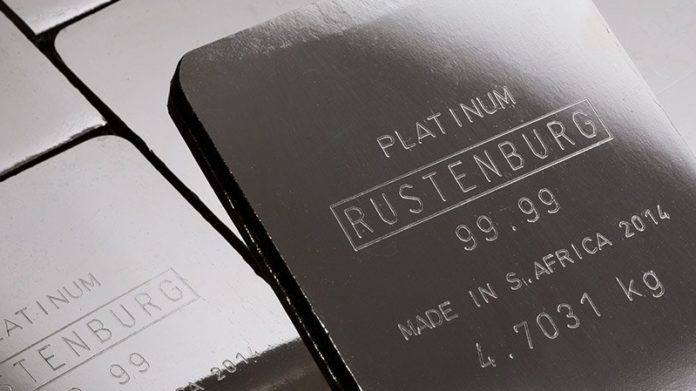
ANGLO American Platinum (Amplats) has shut the processing facilities at its Waterval smelter complex in Rustenburg resulting in refined platinum group metal (PGM) production being cut about a fifth to as little as 3.3 million ounces for its 2020 financial year.
The financial consequences are significant. According to Amplats CFO, Craig Miller, the impact to earnings before interest, depreciation and amortisation will be R18bn ($1.1bn) for the full year and R24bn or $1.6bn at the half-year before mitigation takes place.
There will also be industry disruption as Amplats purchases concentrate from a number of other companies included Royal Bafokeng Platinum, Siyanda-Union, the Modikwa facilities of African Rainbow Minerals, and Sibanye-Stillwater’s Kroondal mine.
This is even before contemplating the impact on PGM prices which have been volatile over the last 18 to 24 months. According to a report by RMB Morgan Stanley, Amplats produces 42% of global primary platinum and rhodium supply (35% excluding tolling), and 24% of primary palladium supply (21% excluding tolling).
The decision to close the Waterval processing facilities follows an explosion in the Anglo Converter Plant (ACP) phase A on February 10 which resulted in its temporary closure whilst repairs took place – estimated for completion by the second quarter of 2021.
As per procedure, Amplats set about commissioning phase B of the ACP, which serves as a backup, when water was detected in the unit. Since the presence of water in the ACP runs the risk of creating an explosion – and because Amplats couldn’t detect how the ingress was occurring, the group also decided to close that facility as well – most likely for a period of 80 days, according to its estimates.
Amplats has consequently declared a force majeure to its customers as well as its third party concentrate suppliers in a development that will add more upward pressure on the prices of palladium and rhodium in particular, as well as platinum.
The price of platinum has gained about $24 per ounce and was last bid at $890/oz whilst palladium was trading at $2,489/oz from $2,375/oz, according to industry website, Kitco.
In terms of Amplats’ adjusted guidance, total PGM 5E + gold will come in between 3.3 and 3.8 million oz compared to a previous estimate for 2020 of 4.2 and 4.7 million oz. Amplats’ first half guidance for total PGMs has been cut to 850,000 to 1,05 million oz.
There will be short-term pressure on the tightly supplied palladium market in terms of Amplats’ new production guidance: the company put production guidance at 300,000 to 350,000 oz versus revised full year guidance of 1.1 to 1.2 million oz.
The outcome was some 900,000 PGM oz that would be cut from the market, but that number does not include third party tolling arrangements that Amplats performs for other PGM miners such as Sibanye-Stillwater.
Asked for his interpretation of market impact, Amplats CEO, Chris Griffith, said the company was “not in the business” of creating deficits in the market. “It has come though at a time of uncertainty in the market,” he added.
According to René Hochreiter, an analyst at Noah Capital, Amplats’ refined production problems could foreseeably push the platinum market from surplus to deficit and extend the palladium deficit to as much as two million oz. Griffith declined to comment.
The World Platinum Investment Council said in its 2020 forecast earlier this week that the platinum deficit would narrow to 119,000 oz which compares to a 790,000 oz surplus in 2018. Griffith said his company would continue to supply customers with contracts, but it might be up to the market to ease demand pressure through substitution.
There was also a possibility of Amplats sending concentrate to other refiners in South Africa, and possibly overseas. “We are looking into that,” said Griffith.
CHAIN OF EVENTS
Commenting on events that led to disruption, Amplats set its ACP phase A converter plant, at Waterval smelter in Rustenburg, was damaged following an explosion, but in which no-one was injured. Repairs have begun and will be completed in the second quarter of 2021.
Phase B of the ACP is kept as a standby unit, but water was detected during its commissioning and ultimately “led to a high risk of explosion. As a result, Amplats said it had “no option but to temporarily shut down of the unit to ensure safety of employees an avoid a catastrophic event”. Phase B would be shut for 80 days.
“As a result of the temporary closure of the entire ACP, Anglo American Platinum has had to declare force majeure to customers, suppliers of third-party purchase of concentrate and suppliers of tolling material, as we are unable to complete the processing of material during the converter repair,” Amplats said.
“Production from own mines will continue, and the concentrate from the mines will continue to be smelted at one of the four smelter complexes. However, production from own mines, as well as third party material will not be able to be converted to refined production while the ACP is undergoing repairs,” it said.









